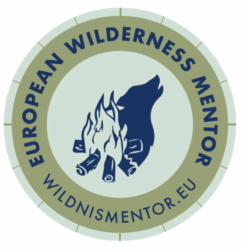The concept of friluftsliv, in English literally “Life in free air”, is a Scandinavian tradition inspired by traditional skills and rooted in the historic rights for people to freely roam the countryside.*
Friluftsliv at Sjövik Folkhögskola is seen as a way to live a nature-friendly life using nature-friendly equipment and skills while travelling across lakes, along rivers and in the forests and mountains.
The pedagogical foundation for the schools two friluftsliv courses – “Friluftliv-Hantverk-Ledarskap”, FHL (Friluftsliv-Crafts-Leadership) and “Kvalificerad vägledare i friluftsliv”, KVF (Qualified mentor in friluftsliv) is the leadership model “Mentoring in friluftsliv”. Inspired by indigenous people’s ways of passing on knowledge, mentoring in friluftsliv focuses on “learning by doing” while promoting safety for both humans and nature.
Mentors apply the leadership role that is called for in each situation. Facing easy conditions, they will invite the group to take necessary decisions, while in demanding conditions leadership will be more direct.
In practice, mentors work with group sizes between 5-8 participants in natural environments and situations that is suitable for the group while learning skills for living a good, simple and comfortable life in nature. They will pass on basic skills like keeping oneself warm and dry, navigating, setting camp and cooking that are appropriate in relation to the landscape and the season. Mentors will also give participants opportunities to learn basic equipment making, storytelling, music and inspire to philosophical reflection.
In this context friluftsliv, and the crafts connected to it, is an active critique of the modern society and its harmful and hostile relationship to nature. Thus, mentoring in friluftsliv aims at inspiring us in the direction of a sustainable way of life in harmony with humans and nature.
*Allemansrätten, the Swedish law of public access, is instrumental in preserving the friluftsliv tradition. Allemansrätten gives individuals the right to travel and camp in the Swedish nature. 1994 it was added into the Swedish constitutional law.
